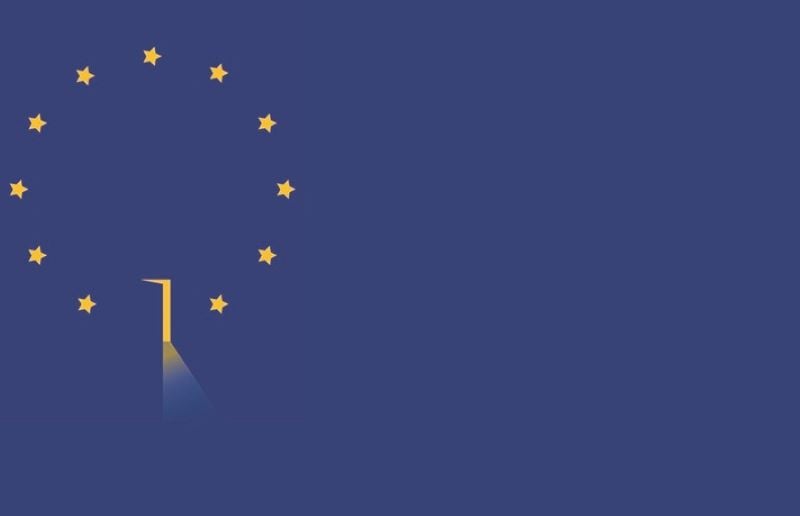Personal guarantee loans for SMEs: A symptom of trouble
What does the dramatic increase in personal guarantee-backed SME finance say about the state of small business? Dr...
READ MORE
While it may have come as a relief to many that Brexit has fallen off the front pages over the past six months, the UK’s decision to leave the EU is the beast that will not die. Brexit is happening, and soon.

While most attention has understandably focused on the Covid-19 pandemic and the subsequent economic fallout, for those who might have forgotten, once the official transition period ends on 31 December 2020, the UK will leave the EU, deal or no deal.
And those still paying attention are feeling increasingly nervous as the political machinations in London, Brussels and the other European capitals threaten to bring about the doomsday scenario that few want to see: a no-deal Brexit.
Be prepared
But what does ‘no deal’ really mean? “It means there is no free trade agreement for goods and services, which means we revert to World Trade Organisation (WTO) rules,” explains Sietske de Groot, head of research at Info Design Central. As an experienced consultant specialising in trade agreements and customs regulation, de Groot has worked with UK businesses to make sure they’re prepared for both the best-case scenario – and the worst.
And a no-deal outcome would certainly be challenging: “In essence, for any business selling or buying goods, the biggest issue with a no-deal scenario will be tariff s,” she says. “If they are introduced, it means extra cost and filling out customs forms and working out tariff codes.”
De Groot points out that the increased customs admin brought by ‘no deal’ is not very different from a deal: “Those forms will be necessary whatever happens. But there are no tariff s or quotas with a deal.” Tariff s are a potential game changer. “There are two types of impact a company will look at,” says Mohan Sodhi, professor of operations and supply chain management at Cass Business School.
“One is the potential decrease in revenues. The other is potential increase in cost.” Professor Sodhi points out that while it may be easier for a multinational to re-jig their production and supply chains, tariff s on smaller companies make things more difficult.
Read the small print
Beyond cost, businesses should be braced for a far greater pile of paperwork if no deal arrives. According to the government’s own figures, there are 145,000 traders who currently do business with the EU who would be learning these more convoluted customs and VAT processes for the first time. Businesses would have to fulfil customs declarations even where no tariff s apply.
For instance, a no-deal Brexit will bring to the fore the need to get on top of any licensing controls to which goods may be subjected. This is particularly important if the business is in healthcare, food or chemicals. Beyond that, businesses should be looking at their supplier declarations and identifying sales to EU clients who incorporate those goods into their products, for re-export to countries with Free Trade Agreements (FTAs).
The next few months would also be a good time to identify purchases from other countries that have FTAs or Generalised System of Preferences agreements with the EU.
Understanding that will help you work out where you should be buying from once you are out of the EU. And, of course, VAT requirements will change. After Brexit, the UK will become a ‘third country’ and supplies of goods crossing international borders will become imports and exports that will attract import VAT and customs/excise duties.
Companies should make sure systems are set up to handle the new VAT requirements and customs arrangements. Crossing borders Beyond physical goods, for those supplying services alone, the biggest impact will be stark: no freedom of movement. And that means you cannot work.
“If you start working then you fully hit the local laws on employment and immigration,” de Groot explains. “And the same would apply here under the points-based system that has been proposed. If we do get a deal, it will see the two sides agree on activities that are exempt from the local immigration rules, for instance market research or teaching.”
The current EU-Canada trade deal only has 11 such exemptions. For every other work activity a visa or work permit is necessary.
Aside from the difficulties of doing business in Europe, for many businesses the biggest potential headache if no deal is negotiated will be felt at home, as the rules covering workers from the EU will likely change. There have already been some moves towards addressing this, and anyone who comes into the UK before 31 December, 2020 can still apply for settled status.
“So if you want to recruit people from Europe, do it now,” de Groot says, explaining that anyone intending to apply for settled status can do so before 30 June 2021, but they must be able to prove they were in the UK before the end of 2020.